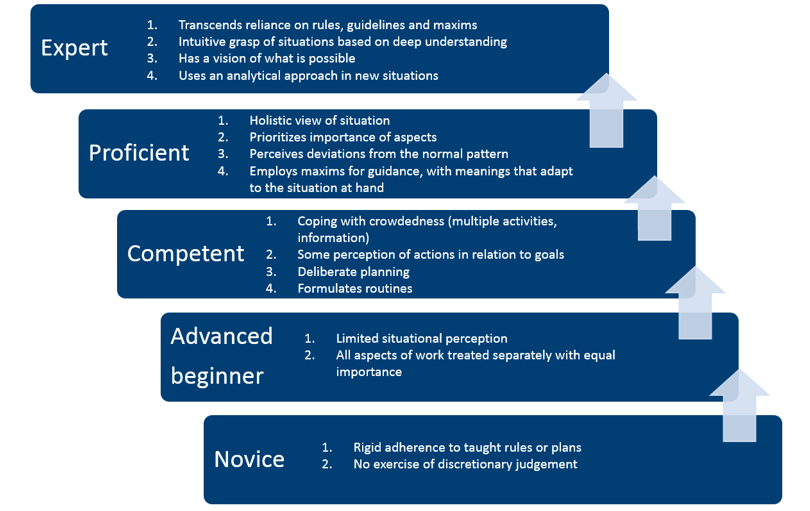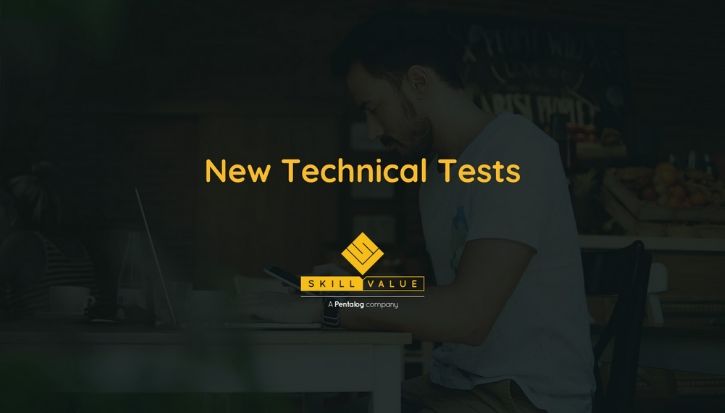After the publication of my first article, I was pleased to receive all your questions and requests for additional information.
Many of your inquiries revolved around the following:
- How do I build an interview score card?
- How do I make the most objective, data-driven decision following the interview?
- What questions do I ask to gauge soft skills? How can I score that?
I realized that while it’s difficult to build a one-size fits all model to interview candidates and a lot of ATS’s (Applicant Tracking Systems) already have an integrated a functionality for this – the building blocks are missing.
That’s what I’m here for!
I’ll be teaching you how to put together a custom interview score card that fits the position you’re looking to fill as well as the qualities/competencies you need on your team.
Have you missed Aurelia’s first article about Remote Recruitment while Practicing Social Distancing? Check it now!
So, what exactly is an interview score card?
In short, it is a model to help recruiters collect qualitative and quantitative data to evaluate candidates side by side. It outlines all the attributes and skills of the ideal candidate for a given position while allowing the recruiter to remain objective and avoid unconscious bias.
How do I start? First off, you should define all the mandatory skills and “nice to have” competencies for the position, separately. Then, make a list with all your criteria.
(To illustrate the process, we can use a PHP Developer search as an example.)
Technical Skills:
- OOP Programming,
- PHP 5 & PHP 7
- Symfony Framework
- RDBMS
- NoSQL Databases
- JavaScript, HTML, CSS, Angular & React
- REST/RESTful/SOAP APIs
- Nginx
- Containerization using Docker
- DevOps Tools – Chef
Soft Skills:
- Adaptability & Flexibility (response to challenges)
- Teamwork (communication, negotiation, conflict resolution, handling feedback)
- Problem Solving (meeting deadlines, handling difficult situations, failure, analytical skills)
- Cultural fit and work ethics (customer service, transparence, willingness to learn)
Once you have your list requirements it’s now time to filter them, because while recruiters might dream of the ideal “swiss army knife” candidate, tech professionals tend to specialize in only 1 or 2 sub-domains in their field.
Firstly, I take a look at the required skills. When it comes to technical skills, I always make sure to include the following question:
If some of the technologies I listed are missing from my candidates’ CV (i.e Angular & React), should I move forward?
Here’s the narrowed-down version of my competencies list:
- OOP Programming
- PHP 5 & PHP 7
- Symfony Framework
- RDBMS
After filtering my list, the others are considered “nice-to-haves”.
To evaluate soft skills, you should think of your team, product, your clients – and define which behaviors you look for. Write them down and then use situational and behavioral questions to evaluate the behaviors. Prepare the list of questions before the interview like below.
Adaptability and Flexibility
- Response to Challenges – “Tell me about a time when you had to work on a project with unclear specifications. How did you respond?”
- Resistance to Change – “Describe a situation when you did not want to change the way you had been doing something at work, even after your colleagues or manager suggested it?”
It is important to remain objective in the interview, so be sure to prepare all the questions before the interview.
Now that you’ve filtered your job description, you can start building your interview score card.
I used the “Dreyfus Model of Acquisition” to build mine – 5 showing Expert skill and 1 being novice.
List all the mandatory requirements, nice to haves and assign them a weight. This weight indicates how critical it is for a new hire to have that skill.
(Many ATS’s do offer score card-functionality, so check if yours has this feature and use it!)
This is an example of an interview score card that I’ve used:
| Criteria | Required/ Nice to have | Expectations | Evaluation | Weight |
| OOP Programming | Required | Competent (3) | 4 | 10% |
| PHP 5 | Required | Competent (3) | 3 | 12% |
| PHP 7 | Required | Competent (3) | 3 | 8% |
| Symfony Framework | Required | Competent (3) | 3 | 7% |
| RDBMS | Required | Competent (3) | 3 | 5% |
| JavaScript, HTML & CSS | Required | Competent (3) | 3 | 8% |
| Adaptability & Flexibility (dealing with ambiguity & resistance to change) | Required | Competent (3) | 4 | 8% |
| Teamwork Ability (communication, negotiation, conflict resolution, handling feedback) | Required | Competent (3) | 4 | 10% |
| Problem Solving (meeting deadlines, handling difficult situations, failure, analytical skills) | Required | Competent (3) | 3 | 10% |
| Cultural Fit & Work Ethics (customer service, transparency, willingness to learn) | Required | Proficient (4) | 3 | 10% |
| NoSQL Databases | Nice to have | Advanced Beginner (2) | 2 | 3% |
| Angular & React | Nice to have | Advanced Beginner (2) | 1 | 3% |
| REST/RESTful/SOAP APIs | Nice to have | Advanced Beginner (2) | 2 | 2% |
| Nginx | Nice to have | Advanced Beginner (2) | 1 | 2% |
| Containerization using Docker | Nice to have | Novice (1) | 1 | 1% |
| DevOps Tools – Chef | Nice to have | Novice (1) | 1 | 1% |
| Score | 3.09 |
In this case, I was looking for a PHP developer. According to Dreyfus, my expectation evaluation note was 3. So, with a weighted average of 3.09, the candidate exceeds expectations.
(Consider all the nice to have skills as only pluses and keep that in mind when making your final decision.)
To further evaluate technical skills, I always suggest the candidate passes a technical test. This can be an online quiz, GitHub project or peer programing live. Take your pick – but above all, the candidate must demonstrate their ability to code – period.
The SkillValue platform has a comprehensive catalog of technical tests and quizzes to evaluate IT candidates. If you are struggling with remote recruitment & need help validating the technical savvy of your applicants, feel free to contact me to gain free access to our platform.
Summary
- Define mandatory requirements and nice to haves.
- Prepare all your questions.
- Build your score card and assign a weight for each skill
- Supplement your interview with a coding quiz to revalidate technical knowledge.
Now, you’re all set & ready to conduct a remote interview.
Remember – at the other side of the webcam is a real person. So, although you’re trying to make an unbiased, objective decision – it’s important to make sure each candidate feels connected to your brand, culture, and values. This entails showing empathy. Be flexible, be willing do your part and most important – be human.
If you need help in defining must-have skills for the position you’re interviewing for, scoring, building a questionnaire to assess soft skills, I’ll be more than happy to assist. Here you have my agenda, feel free to book a slot.















